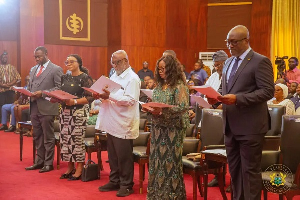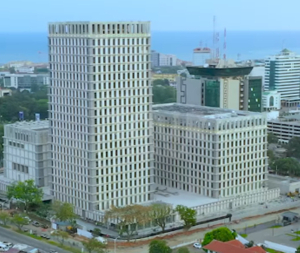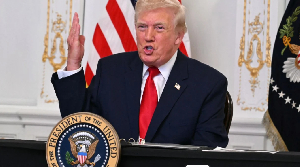Recent happenings in schools across the country and to some extent the world at large must be a source of worry to everyone who has the future of this country and the development of our youth at heart.
For instance a recent report by the World Health Organization says there has been a sharp increase in smoking by school-age children in Zimbabwe, despite the illegality of selling tobacco products to children. The World Health Organization report revealed that 20 percent of adolescents in Zimbabwe are consumers of tobacco products.
Contrarily to article 16 of the Public Health act 2012 (act 851) which prohibits persons under eighteen years of age from buying, selling or been exposed to tobacco products, an investigation by the Daily Express Newspaper in September last year revealed an alarming development at the La Pleasure Beach resort in Accra where minors as young as 9 and 12 years engage in tobacco trade.
According to the report published in the Newspaper, these children are openly seen selling cigarettes to holiday makers at the popular beach resort , with some going the extra mile of demonstrating how some of these products are used.
The Daily Graphic in February this year reported that the authorities of the Mary Afriyie SDA Basic School (JHS) at Mamponteng in the Kwabre East District in the Ashanti Region apprehended seven male pupils for practicing occultism after school.
According to the report, the pupils who aged between 11 and 15 were caught performing some rituals and doing incantation intended to help them to get quick and free money overnight.
A Joy FM report published on myjoyonline.com also revealed that some female Junior High School (JHS) students of Ahwiam Basic School in the Ningo Prampam District of the Greater Accra region are trading their womanhood for fish due to hunger. The students, some of whom are expected to sit for this year’s Basic Education Certificate Examination (BECE), said they got themselves in the situation because their parents failed to cater for them.
The finder newspaper reported that a 19 year old junior high school drop-out resident in Agbozume in the Volta Region was arrested by the cybercrime division of the Criminal Investigative Division (CID) of the Ghana Police for impersonating COP Christian Tetteh Yohumo, Director of general operations.
These developments coupled with several others which the media may not have covered call for a consented effort of all stakeholders to deal with it in our quest to nurture, groom and develop our children into responsible adults.
The recent happenings also call for a retrospective overview of the institutions that are responsible for managing our young people so that we can restrategise and contain the challenges confronting the youth.
The Media
The media landscape in the country for sometime appears to contribute significantly to the present challenges we find ourselves in. Particularly the electronic media seems to lend strong support to all manner of people who claim to have solution to every problem on this earth. Most of these media houses have allowed money to override the interest and safety of our youth. We need to sanitize how we do broadcasting in Ghana since most of these people who claim to have all powers have the youth as their target. Some of these people end up taking advantage of the vulnerability of the youth to defraud them.
Ghana Education Service
The Ghana Education Service appears not to be robust in tackling most of the issues that confront students in school. This is also because we have tied the success of a school to its ability to pass pen and paper test at the expense of social and moral factors. Schools aside their normal teaching and learning must also churned out people with high moral integrity and an appreciation of the human relation and the natural world. The Girls Education and Guidance and Counselling units are very weak at the grass root and are not able to assist most students with challenges. These two important units are poorly resourced and sometimes lack the requisite expertise to help the youth.
The National Youth Authority
The Youth Authority is also poorly resourced and is not able to assist the out of school youth. Over the years, I have seen the Authority paying thousands of lip services to young people but no concrete action is seen yet. The government seems not to have the youth authority on its priority agenda and this is a source of worry for all actors in the youth development sector.
Parents
It is time for us as a country to have a public debate on proper parenting styles since it is also a contributing factor to the current situation. The more parents continue to shirk their responsibilities toward their children, the more the country continues to suffer from crisis. The family is the basic unit of our society so anytime something bad happens to the family, it affects the larger society. Until we train our children with ethics and proper values, we must not expect ethical leadership from the larger society.
Conclusion
We must all relentlessly continue to help our young people to have personal mission and goals in life so that their focus will always be on their set goals to avert them from being detracted by all manner of social vices.
Ali Tanti Robert
Director, Youth Alliance for Development
Obuasi
+233246486740
tantirobert@yahoo.co.uk
Opinions of Sunday, 10 April 2016
Columnist: Robert, Ali Tanti
Youth development in Ghana: A clarion call for all hands on deck
Entertainment













